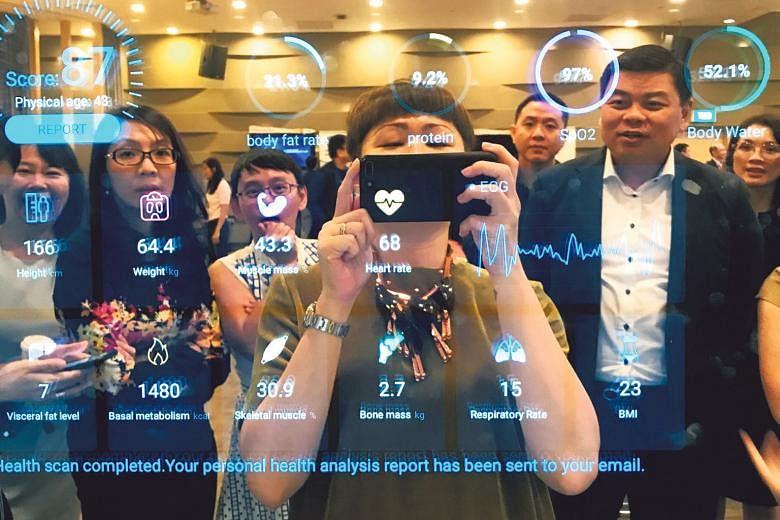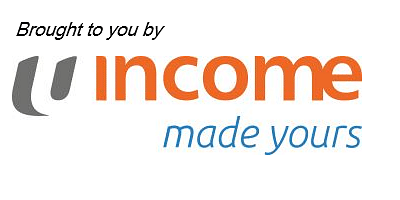Navigating culture change in the workplace is a daunting task - but one that Income has managed to accomplish with great success.
Over the last four years, Income has undergone a transformation journey to reimagine its products and offerings and, more importantly, equip its people with the right skill sets and mindsets to continue driving innovation in the industry.
The home-grown insurer has not only reimagined its business for the future of insurance by developing new insurance models to meet evolving customer needs and creating omnichannel touchpoints to enhance customer experience, but has also embarked on a company-wide culture shift that has helped to build a team of people unafraid to embrace change.
Working towards a common goal
Critical to building a strong, positive company culture are employees who are engaged. This helps to instil unity in the workplace and ultimately contributes to the growth of an agile, adaptive organisation.
Having embraced the belief that its people hold the key to its success, Income began initiating a movement across all levels of the organisation to ensure everyone, from management to staff, is on the same page in the evolution to become a forward-looking, customer-led organisation.
And while it has been a rewarding experience, managing culture change on such a large scale did come with its challenges, says Ms Juliana Ang, Income's chief human resource officer. "We recognised early on that technology was disrupting the future of the financial services industry, so change was inevitable.
"From as early as 2016, we started nudging our 1,800-strong staff towards a mindset shift by organising workshops to help them rethink how they view situations, and to examine their value as individuals and as employees from different perspectives."
From there, she adds, it became easier to "speak the same language and work towards a common goal".
Harnessing the power of its people
Income focused on several practices to empower organisation-wide transformation by helping employees bridge the gap between their current capabilities and mindsets to what they - and the organisation - aspire to be.
To kick-start the process of culture change and engaging employees on the initiatives and strategies of the business, education and exposure were crucial. "As a 50-year-old company with a legacy system and many long-serving staff, we knew that it would take time and effort to persuade everyone to get on board," says Ms Ang.
"To build awareness of the need for change, we brought in experts in next-generation technologies such as AI and data to share new developments that are pushing the boundaries in our industry. This allowed us to show the team that the world is indeed changing, and that we must pivot to stay ahead."
Income set up a Digital Transformation Office (DTO) in 2017, where a digitalisation team was tasked to cultivate a start-up mentality among employees and look into ways to disrupt the industry. A key part of this strategy was to bring in diverse talents - such as lawyers, bankers and business developers - from non-insurance backgrounds to inject vitality and reimagine the way people think about insurance.
This has led to ground-breaking insurance offerings such as SNACK (stackable micro-insurance and investments linked to lifestyle activities), TRIBE (subscription-based insurance) and user-based insurance motor insurance, Milesurance and Covered.
Sharpening customer-centricity with design thinking
To further embed the concept of culture change, Income also emphasises experiential learning in the form of accelerator programmes, customer experience workshops, cross-divisional projects, as well as a design thinking playbook to help them embrace the transformation journey.
For instance, at IdeaSmash, a 36-hour idea hackathon, staff came up with innovative solutions to problems, like a start-up. In the next edition happening in October, they will be tasked to resolve real business problems. Staff also embed digitalisation at work as they access Income offices via their mobile phones. They also manage their leave, expenses and claims on the mobile app, HR on the Go.
The design thinking workshops, in particular, proved instrumental in enabling staff to expand their problem-solving approaches from a customer-centric point of view.
A senior manager with Income's actuarial department, Ms Liaw Wan Ye applied what she learned in design thinking in her collaboration with the DTO team to develop, price and manage the risks of new insurance products. These include SNACK and a Critical Illness Pay-Per-Trip policy with Grab Insure.
She also put on her design-thinking cap when performing an annual review of the advisors' remuneration packages. "Traditionally, actuaries implement changes based on the results of actuarial calculations. Through applying a design thinking framework, however, we were able to interview advisors on the ground, understand their pain points and identify how we can work together to design a package that would motivate and enable them to achieve their targets more effectively," she elaborates.
Likewise, Ms Lee Rui Ping, an executive at Income's Distribution Middle Office, also found design thinking fruitful in her work. "Sometimes, projects or new initiatives do not pan out - not because the ideas are not good, but because we fail to look at things from the consumer's point of view. Design thinking helps to give different perspectives to things," she shares.
"I participated in a Customer Experience 2.0 workshop, which taught me how to map out a customer journey from beginning to end. Although I am not currently in a customer-facing role, it sharpened my problem-solving and communication skills because I now see things from both sides of the coin."
During her secondment as a trainer, Ms Lee put her newfound knowledge to work when she successfully switched the way she approached a training session. "From the viewpoint of a trainee, multiple sessions make classes exhausting, and it is difficult for trainees to retain what they've learnt. Taking these factors into consideration, I engaged the class with games, role playing, questions and sharing."
Paving the way to future-proof Income
Complementing these efforts are Income's tailored annual training plans for individuals that include a data curriculum introduced in June to enhance employees' knowledge and skills in the use of data in day-to-day decisions.
The curriculum is divided into four specially designed workshops to help staff at all levels - from management to administrative - understand how data plays an essential role in their jobs and how to appreciate getting their foundations correct.
That a company is only as extraordinary as its people is something Income understands very well.
Ms Ang says: "Our intention is to future-proof our staff so that they are ready for the future alongside the business. Training plans are dynamic and change in tandem with trends to equip everyone with the skills to meet future challenges.
"And in the spirit of continuous improvement, we are already working on our 2025 roadmap. The industry is rapidly evolving, so enriching our training curriculum will help ensure that staff can broaden their knowledge and continue to grow with us."


